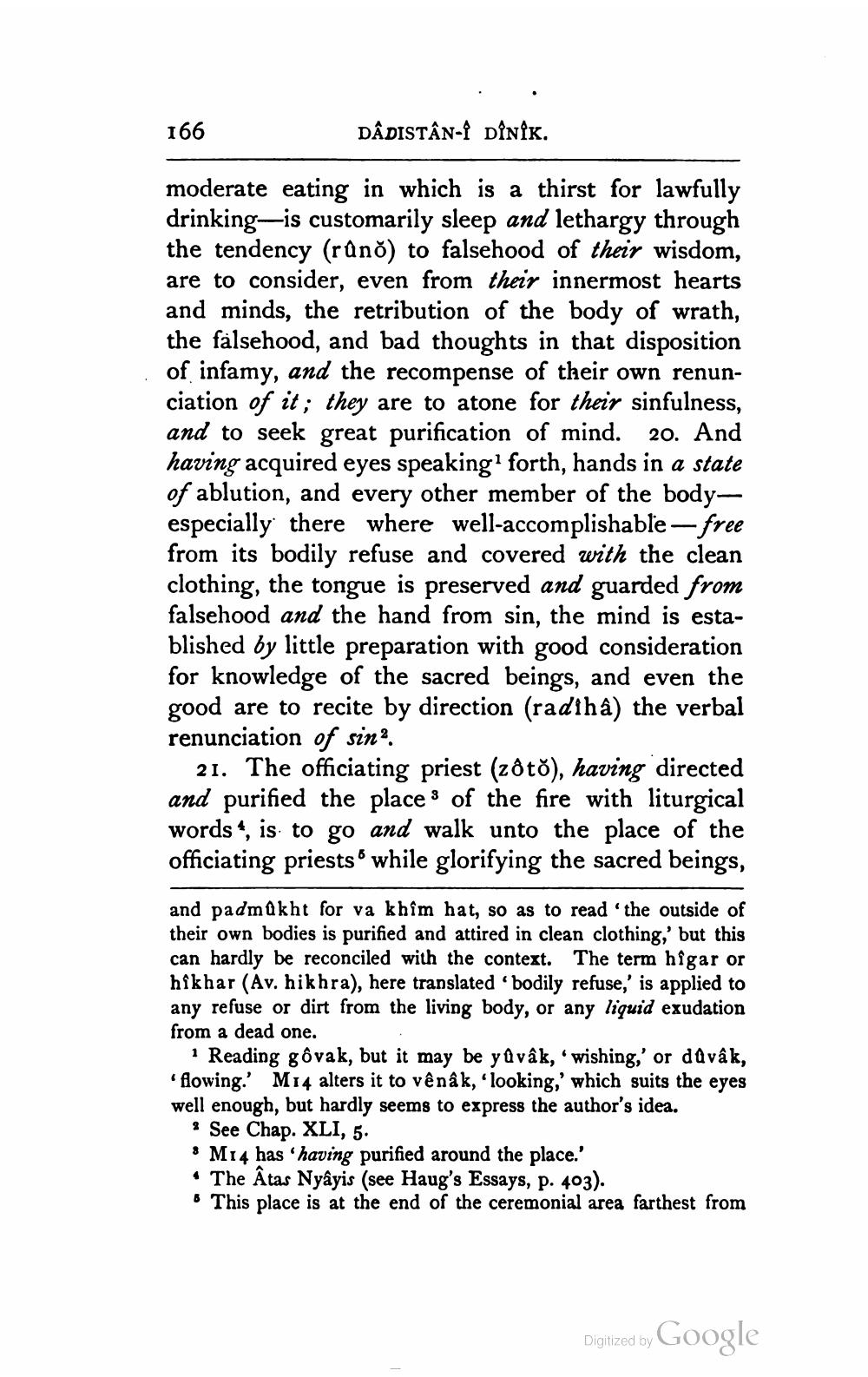________________
166
DÂDISTÂN-I DÎNÎK.
moderate eating in which is a thirst for lawfully drinking—is customarily sleep and lethargy through the tendency (rūno) to falsehood of their wisdom, are to consider, even from their innermost hearts and minds, the retribution of the body of wrath, the falsehood, and bad thoughts in that disposition of infamy, and the recompense of their own renunciation of it; they are to atone for their sinfulness, and to seek great purification of mind. 20. And having acquired eyes speaking forth, hands in a state of ablution, and every other member of the bodyespecially there where well-accomplishable - free from its bodily refuse and covered with the clean clothing, the tongue is preserved and guarded from falsehood and the hand from sin, the mind is established by little preparation with good consideration for knowledge of the sacred beings, and even the good are to recite by direction (radihâ) the verbal renunciation of sin.
21. The officiating priest (zôto), having directed and purified the places of the fire with liturgical words “, is to go and walk unto the place of the officiating priests while glorifying the sacred beings,
and padmakht for va khim hat, so as to read the outside of their own bodies is purified and attired in clean clothing,' but this can hardly be reconciled with the context. The term hîgar or hikhar (Av. hikhra), here translated bodily refuse,' is applied to any refuse or dirt from the living body, or any liquid exudation from a dead one.
1 Reading gôvak, but it may be y avâk, wishing,' or duvâk, flowing. M14 alters it to vênâk, 'looking,' which suits the eyes well enough, but hardly seems to express the author's idea.
* See Chap. XLI, 5. * M14 has 'having purified around the place.' · The Atas Nykyis (see Haug's Essays, p. 403). * This place is at the end of the ceremonial area farthest from
Digitized by Google




